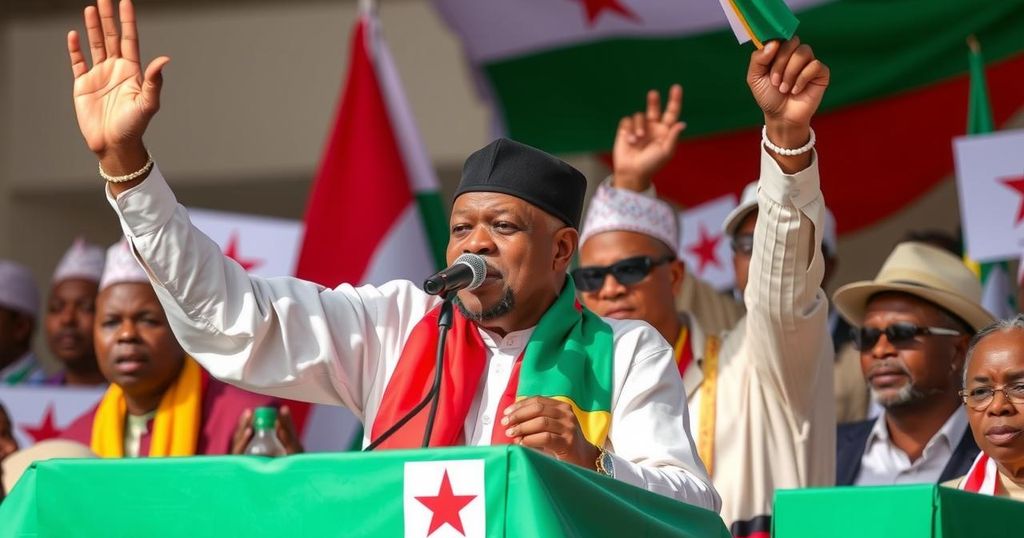Chad’s Ruling Party Secures Majority in Boycotted Parliamentary Election
Chad’s ruling party, the Patriotic Salvation Movement, won the majority of seats in recent parliamentary elections with 124 out of 188, amid a boycott by major opposition parties. The elections were critical for the country’s democratic transition under President Mahamat Idriss Déby following the death of his father. Despite a voter turnout of 51.5%, the opposition condemned the election as illegitimate, raising concerns over Chad’s political future amid ongoing security challenges.
Chad’s ruling Patriotic Salvation Movement (PSM) party has secured a majority of seats in the recent parliamentary election, according to provisional results released by the electoral commission. The election, which was deemed a significant moment in the country’s political landscape due to its being the first parliamentary vote in over a decade, witnessed a voter turnout of approximately 51.5%. The PSM party claimed 124 out of 188 available seats, further consolidating the political influence of President Mahamat Idriss Déby, who has ruled since taking power in 2021 following his father’s death.
Significantly, the parliamentary elections were overshadowed by a boycott from more than ten opposition parties, including the prominent Transformers party. These groups criticized the electoral process, labeling it a “charade” in light of concerns regarding the credibility of the previous presidential election. Despite the lack of participation from major opposition factions, President Déby stated that the election would facilitate “the era of decentralization so long awaited and desired by the Chadian people.”
The elections took place during a tumultuous period for Chad, as the nation grapples with numerous security threats, including ongoing Boko Haram insurgencies and a shift in relationships with traditional allies such as France. As the results unfold, the response from the opposition remains to be seen, particularly in light of their previous claims against the electoral legitimacy.
Chad has a complex political history that has seen long periods of military rule and governance by a single party. The recent parliamentary elections were intended to be a pivotal step in transitioning towards a more democratic form of governance after Mahamat Idriss Déby ascended to power following the death of his father, Idriss Déby Itno, who ruled for thirty years. Over the course of Déby’s rule, the country has faced numerous internal and external challenges, affecting governance and stability, notably from militant groups such as Boko Haram. These elections were the first chance for elected representation in over a decade, and the ruling party’s dominant win, amidst opposition boycotts, illustrates ongoing tensions in Chad’s political landscape.
The parliamentary elections in Chad have resulted in a significant victory for the ruling Patriotic Salvation Movement, which has secured a substantial majority. With over ten opposition parties boycotting the election, the legitimacy of the results and the overall governance of the transitional government remain contested. The implications of this election are profound, as President Déby seeks to assert power while addressing pressing security issues facing the nation. The future political discourse will largely depend on the reactions of the opposition to these provisional results.
Original Source: www.mymotherlode.com




Post Comment